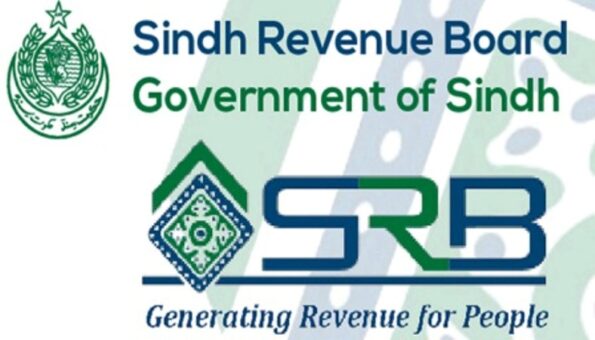KARACHI: The US dollar continued its upward journey to make new record highs against the Pak Rupee (PKR) for the fourth straight day on Friday as it ended at Rs177.71 in foreign currency market.
(more…)Author: Faisal Shahnawaz
-

SBP issues KIBOR rates on December 10, 2021
KARACHI: State Bank of Pakistan (SBP) on Friday issued the Karachi Interbank Offered Rates (KIBOR) as of December 10, 2021.
Following are the latest KIBOR rates:
Tenor BID OFFER 1 – Week 9.06 9.56 2 – Week 9.21 9.71 1 – Month 9.63 10.13 3 – Month 10.57 10.82 6 – Month 11.27 11.52 9 – Month 11.37 11.87 1 – Year 11.43 11.93 -

Customers’ exchange rates on December 10, 2021
Karachi, Pakistan – The State Bank of Pakistan (SBP) has published the exchange rates for December 10, 2021, providing customers with valuable information based on the weighted average rates of commercial banks.
(more…) -

Today’s currency exchange rates in PKR – Dec 10, 2021
KARACHI: Following are the open market exchange rates of foreign currencies in Pak Rupee (PKR) in Pakistan on December 10, 2021 (The rates are updated at 10:05 AM Pakistan Standard Time):
Currency Buying Selling Australian Dollar (AUD) 125.50 126.80 Bahrain Dinar (BHD) 386.85 388.60 Canadian Dollar (CAD) 139 140.50 China Yuan (CNY) 23.50 23.90 Danish Krone (DNK) 23.50 23.80 Euro (EUR) 200 202 Hong Kong Dollar (HKD) 16.75 17 Indian Rupee (INR) 2.03 2.10 Japanese Yen (JPY) 1.41 1.44 Kuwaiti Dinar (KWD) 481.80 484.30 Malaysian Ringgit (MYR) 36.50 36.85 NewZealand $ (NZD) 96.55 97.25 Norwegians Krone (NOK) 17.50 17.75 Omani Riyal (OMR) 392.75 394.78 Qatari Riyal (QAR) 39.90 40.50 Saudi Riyal (SAR) 47.50 48 Singapore Dollar (SGD) 128.50 129.80 Swedish Korona (SEK) 18.50 18.75 Swiss Franc (CHF) 159.90 160.80 Thai Bhat (THB) 4.80 4.90 U.A.E Dirham (AED) 48.50 49 UK Pound Sterling (GBP) 235.50 238 US Dollar (USD) 178.50 180.25 Disclaimer: Team PKRevenue.com provides the available rates of the open market, which are subject to change every hour. Team PKRevenue.com provides the available exchange rates at the time of posting the story. So the team is not responsible for any inaccuracy of the data.
-

SBP’s forex reserves increase to $18.658 billion
KARACHI: The foreign exchange reserves of the State Bank of Pakistan (SBP) have increased to $18.658 billion after a deposit of $3 billion from Saudi Fund for Development (SFD).
READ MORE: Pakistan’s import cover reduces to two months
The SBP on Thursday said during the week ended December 03, 2021a deposit of US$ 3,000.0 million was received from Saudi Fund for Development. After accounting for external debt and other official payments, SBP reserves increased by $2.648 billion to $18.658 billion, the SBP added.
The total foreign exchange reserves of the country have increased by $2.652 billion to $25.151 billion by week ended December 03, 2021. The foreign exchange reserves were at $22.499 billion by week ended November 26, 2021.
The foreign exchange reserves held by commercial banks registered a nominal increase by $4 million to $6.493 billion when compared with $6.489 billion a week ago.
-

KSE-100 index sheds 328 points on lockdown fears
KARACHI: The benchmark KSE-100 index of Pakistan Stock Exchange (PSX) declined by 328 points on Thursday on fears of lockdown as Omicron cases emerged in the country.
The KSE-100 index ended at 43,519 points from previous day’s closing of 43,847 points.
Analysts at Topline Securities said that Pakistan equities started the day on a positive note initially but succumbed to selling pressure after made an intra-day high at 43,997 level in the early trading hours.
Investors’ sentiment dampened on the news regarding Omicron cases emerged in the country, paving the way for another possible cycle of smart lockdowns in the effective areas.
At one time, KSE 100 index made an intra-day low at 43,274 level before closing at 43,519 level.
Cements, Banks & Technology sector witnessed profit taking today where LUCK, HBL, MEBL, DGKC, CHCC & AVN cumulatively lost 158 points while OGDC & PPL added 74 points collectively as investors are expecting a onetime heavy dividend in them.
Total volume and value stood at 200 million shares and Rs. 8.75 billion, respectively. TRG was at top on the volume chart with 25.7 million shares traded in it, today.
-

SRB invites proposals for Budget 2022-2023
KARACHI: Sindh Revenue Board (SRB) has invited proposals for budget 2022/2023 from stakeholders by January 21, 2022.
The SRB said it was in process of formulating budgetary proposals for provincial budget 2022-2023 in relation to taxation and procedural provisions of Sindh Sales Tax on Services Act, 2011, the Sindh Sales Tax on Services Rules, 2011, the Sindh Sales Tax Special Procedure (Withholding) Rules, 2014, the Sindh Sales Tax Special Procedure (Transport or Carriage of Petroleum Oil through Oil Tankers) Rules, 2018 and the Sindh Sales Tax Special Procedure (Services provided or rendered by cab aggregator and the services provided or rendered by the owners or drivers of the motor vehicles using the cab aggregator service) Rules, 2019 and the various notifications issued under the Act 2011.
READ MORE: Sindh Revenue Board announces tax incentive package
The SRB said that it was policy of the board to consult all chambers, associations, groups, stakeholders and taxpayers before finalizing the budget proposals.
“With this end in view, SRB requests all persons (including the chambers of commerce and industry, business councils, trade associations, tax bars, Institution of Chartered Accountants, Institute of Cost and Management Accountants, taxpayers, etc.) to send their written proposals latest by Friday, January 21, 2022.
-

SITE Association signs MoU for tax return filing
KARACHI: SITE Association of Industry has signed a Memorandum of Understanding (MoU) with Befiler for facilitating its members and their employees in tax filing, and related business services for promoting compliance culture among its member organizations.
Patron-in-Chief of SITE Association, Muhammad Zubair Motiwala graced the signing ceremony with his presence. Abdul Rasheed, President, SITE Association of Industry along with SVP Saud Mehmood, VP Muhammad Kamran Arbi and senior members Anwer Aziz, Riaz Uddin, Abdul Kadir Bilwani and others were present at the ceremony. Asad Ali Shah, Chairman Befiler and Akbar Ali, CEO Befiler were representing Befiler.
READ MORE: MTO Karachi asks taxpayers to file income tax returns
With this partnership, SITE Association of Industry, one of the highest taxpayer industrial zone in the country, takes another step towards further compliance. Members of SITE Association of Industry will be able to file their tax returns using Befiler app or portal, and receive support and guidance from Befiler to effectively engage with the process and become part of Active Taxpayer’s List (ATL).
SITE Association of Industry comprises of over 4,500 industrial units of varying sizes, including textiles, heavy machinery, beverages, automobiles, silk, oil, soap, food, chemicals, pharmaceuticals, steel, glass, paints, ready-made garments, etc. With this partnership, SITE Association of Industry is now taking another step towards a responsible and tax compliant institution. Through this partnership it is sending a strong message to its members in particular and citizens of Pakistan in general regarding its determination to foster a disciplined and compliant business environment.
READ MORE: Persons not required to file income tax return
Befiler is Pakistan’s largest & only digital tax filing platform offering truly digital NTN registration and tax filing experience. Befiler provides its services, and additional support through calls, live chat, and whatsapp to its clients. This partnership highlights Befiler’s wide acceptance, and credibility in Individual and Business sectors alike.
Befiler believes that through the use of technology and its digital platform, the entire ecosystem of tax filing and compliance can be automated, making it easy and simple for tax payers leading to greater number of citizens becoming compliant. Bringing digital solution to the business community is a move in the right direction given the scope for growth, systematic reforms and bringing agility to processes through the use of technology.
READ MORE: Requirement of filing income tax return by persons
-

SBP issues KIBOR rates on December 09, 2021
KARACHI: State Bank of Pakistan (SBP) on Thursday issued the Karachi Interbank Offered Rates (KIBOR) as of December 09, 2021.
Following are the latest KIBOR rates:
Tenor BID OFFER 1 – Week 8.97 9.47 2 – Week 9.09 9.59 1 – Month 9.56 10.06 3 – Month 10.58 10.83 6 – Month 11.28 11.53 9 – Month 11.39 11.89 1 – Year 11.44 11.94 -

Dollar touches Rs178 intraday trading, retreats
KARACHI: The US dollar recorded a new record high of Rs178 at intraday trading on Thursday but retreated and closed at Rs177.61, which is also an all-time high by closing at interbank foreign exchange market.
Currency experts said that during the intraday trading the dollar touched Rs178, which was never seen in the past. However, the Pak Rupee (PKR) recovered some losses during the day but closed at yet another historic low of Rs177.61 in interbank foreign exchange market.
The experts said that burgeoning import bill kept pressure on dollar demand during the day. They said that the external inflows were not sufficient to support the local unit.
Last week the Saudi Fund deposited an amount of $3 billion with the State Bank of Pakistan (SBP) to support Pakistan, to manage balance of payment.
The experts said that high international prices and growing domestic demand escalated the import bill.
The official data of Pakistan Bureau of Statistics (PBS) showed the import bill of the country climbed up by 69.17 per cent to $33 billion during first five months (July – November) 2021/2022 as compared with $19.47 billion in the corresponding months of the last fiscal year.